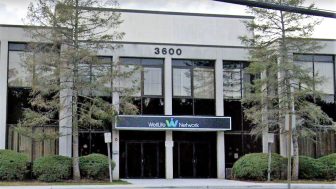Seafield Medford
3251 Route 112
Building 9, Suite 2
Medford, NY 11763
About Seafield Medford
Seafield is an outpatient substance use and mental health disorder treatment center located on Route 112 in Medford, New York. Outpatient treatment at this center includes therapy, medication monitoring, and medication-assisted treatment (MAT) for opioid detox if appropriate. They treat adults and teens ages 13 and up. They accept most insurances and they offer sliding scale payment arrangements if you’re uninsured.
The outpatient clinic offers morning and evening sessions so you can continue with daily activities like work and school. Services include psychiatric evaluations to ensure placement in the right program and determine whether you have any co-occurring mental health disorders.
They have some unique programs including the family program. This is a family education series with workshops in recognition of the fact that addiction affects the entire family. They educate families about enabling behaviors and codependency while teaching family members how to cope constructively with an addicted family member. They’ll also acquaint families with the 12 Step model of recovery and the support groups for nonaddicted family members such as Al-Anon.
They offer a mental illness and chemical abuse (MICA) program at this location. MICA programs are for clients with a chemical dependency and co-occurring mental illnesses such as bipolar disorder, schizophrenia, depression, anxiety or other mental health challenge. MICA programs are flexible and use modified forms of cognitive behavioral therapy (CBT) to address mental health and substance use in tandem.
There’s a women’s group that offers women a safe space to share the issues uniquely faced by women with substance use and mental health disorders. Parenting groups are available.
If you’ve been incarcerated and have a mental illness or substance use disorder, they offer a reentry group. In addition to addressing substance use and mental health issues, they’ll help with social reconnection, developing healthy coping strategies, and managing stress and anger while integrating back into society.
Relapse prevention groups are available and are an important part of recovery. You need to have a plan and support community after graduating from the outpatient program.
Amenities
Private drug rehab provides a comfortable, secure environment that allows you to focus on doing the work to get your life back on track. Benefits include a higher staff-to-client ratio, increased one-on-one time with therapists and healthcare providers, private rooms for clients, and customized forms of therapy.
Addiction Treatment Programs
A quality adult program in New York provides a combination of medical, mental, and emotional support to treat the whole individual. Various methods are used to help adults achieve and maintain sobriety.
To address the full range of issues involved in alcohol use disorder, an alcohol rehab in New York often incorporates a variety of treatment methods. Physical activity, nutrition, psychotherapy, and support groups are common aspects of treatment.
Some men benefit most from men’s rehab in New York. These programs understand the unique challenges that men face when struggling with addiction, and they offer personalized treatment to address these challenges.
Men and women face different issues when it comes to addiction and recovery. Women’s rehab in New York offers treatment approaches that address life issues that are specific to women.
There are many options available for opioid rehab in New York. Treatment programs include detox, inpatient rehab, outpatient rehab, or intensive outpatient programs (IOPs). Consider the severity of your addiction, how long you’ve been addicted, and personal history to determine which type of program is best for you.
Cognitive behavioral therapy in New York emphasizes how thoughts affect mood. It is a goal-oriented method that teaches participants how to address dysfunctional thoughts and underlying beliefs that can lead to substance abuse and addiction.
When you choose drug rehab in New York, you’ll participate in a variety of treatments that are designed to help you live a drug-free lifestyle. Common methods of treatment include group, individual, and family counseling, medication management, nutrition, exercise, and management of co-occurring mental health disorders.
During elderly rehab in New York, you’ll participate in a variety of therapies, including individual, group, and family. Common methods include cognitive behavioral therapy, 12-step methods, and case management, all with a focus on age-specific needs.
Men and women face different issues when it comes to addiction and recovery. Women’s rehab in New York offers treatment approaches that address life issues that are specific to women.
Veteran’s rehab in New York helps Veterans quit using alcohol and drugs and reduce the risk of relapse with specialized treatment. Specialists help Veterans adjust to life outside the military, address previous trauma, and live a sober lifestyle.
Assertive Community Treatment (ACT) is an integrative, community-based care strategy designed to address the needs of persons with severe and/or complex mental illness or behavioral disorders. ACT is typically provided by a multidisciplinary team of medical and mental health care providers, social workers, therapists, and other specialists, including addiction recovery professionals. These services are frequently provided in the home and community to clients in crisis, those who are clinically unstable, and those who are unable or unwilling to travel to a hospital or clinic for in-person treatment.
Levels of Care
For those who require accountability but less intensive oversight, outpatient rehab in New York is a good option. During this treatment, you meet regularly with a counselor and attend support group meetings, for accountability and encouragement. This may last for a few weeks or months, based on your recovery journey.
Mental health disorders that co-occur with substance abuse disorders often cause relapse. For successful recovery, both disorders must be treated, with dual diagnosis treatment in New York. Common methods include cognitive-behavioral therapy, medication management, and counseling.
Inpatient drug rehab in New York can last 28 to 90 days, depending on the program. During that time, you’ll live at the rehab facility and receive various treatment methods including individual and group therapy.
The first step toward a drug-free future is detox in New York. This is the process of slowly and safely ridding your body of all addictive substances, while under 24/7 supervision by professionals.
Intervention services are a valuable addiction treatment tool for those seeking to get a loved one started on a recovery journey. Professional intervention staff can help plan and facilitate interventions, provide access to key resources, and assist in developing a personalized treatment plan for drug rehab in New York.
Accreditations
Accepted Insurance














